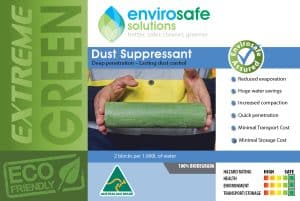 As theproposed carbon tax continues to dominate headlines the real question for Australian households and businesses is whether it will reduce greenhouse emissions. Today we take a look around the globe at other countries which have already introduced a carbon tax.
As theproposed carbon tax continues to dominate headlines the real question for Australian households and businesses is whether it will reduce greenhouse emissions. Today we take a look around the globe at other countries which have already introduced a carbon tax.
TheFederal Government’s planned carbon tax has divided Australians.
Green revolution proponents believe the tax will provide the impetus for polluters to reduce their carbon emissions by developing new technologies and more sustainable energy sources.
Opponents, including mining giants BPH and Rio Tinto, claim it will reduce their ability to compete for lucrative contracts against overseas companies.
Households and small business fear the cost of rising electricity bills under the new system will add to their financial pressures.
At its core the tax – which will encompass stationary electricity, transport and industrial sectors – aims to put a price on the carbon released into the environment when fossil fuels are burned.
While the Gillard Government has not announced the per tonne price it will set for carbon pollution, it has promised to lock-in the initial price for the first three to five year period. During this period the Government intends to establish an emissions trading scheme to cap total carbon emissions.
A carbon tax has already been introduced in other countries, mainly small European nations but also emerging market India. South Africa, like Australia, is poised to introduce a tax.
- Finland was the first country to set a price on carbon in 1990 and taxes carbon emissions at 20 Euros per tonne;
- Sweden introduced a carbon tax in 1991 and between 1990 and 2006 cut its carbon pollution by nine percent;
- Norway introduced a carbon tax in 1991 and between 1991 and 2008 recorded a significant increase in its emissions;
- Denmark introduced a carbon tax in 1992. Its industries are taxed according to whether a company employs energy efficiency measures and what it produces. Per capita carbon dioxide emissions in 2005 were 15% lower than in 1990;
- The Netherlands has a tax on all processed fossil fuels based on energy and carbon contents;
- Switzerland introduced a carbon incentive tax in 2008. It also has an emissions trading system. The country’s greenhouse gas emissions were stable between 1990 and 2007;
- Ireland introduced a tax on oil and gas in 2010;
- Costa Rica introduced a tax in 1997 which raises money to fund the protection of forests.
A quick glance at carbon tax schemes across the globe shows different countries have taken a variety of approaches to taxing emissions and the outcomes for Australia’s proposed carbon tax remain unclear.
Environmental cleaning products firm Envirosafe Solutions has watched the carbon tax debate with interest. Its corporate commitment to green revolution practices includes offsetting its own emissions by donating two per cent of profits to Carbon Neutral.
It supplies eco-friendly industrial liquids such asits Extreme Green fuel conditioners and treatments to heavy emitters including the mining and transport sectors. From hand cleaners to radiator cleaners, its range of environmental cleaning products has been tailored to help industry employ more sustainable practices.
Australia’s proposed carbon tax indicates a commitment toward reducing greenhouse gas pollution. For more sustainable business solutions contact Envirosafe Solutions on 1300 88 90 70 or email info@evss.com.au.
Sources:
http://www.mpe-magazine.com/comment/time-to-act
http://www.sbs.com.au/news/article/1492651/at-a-glance-carbon-taxes-around-the-world



















